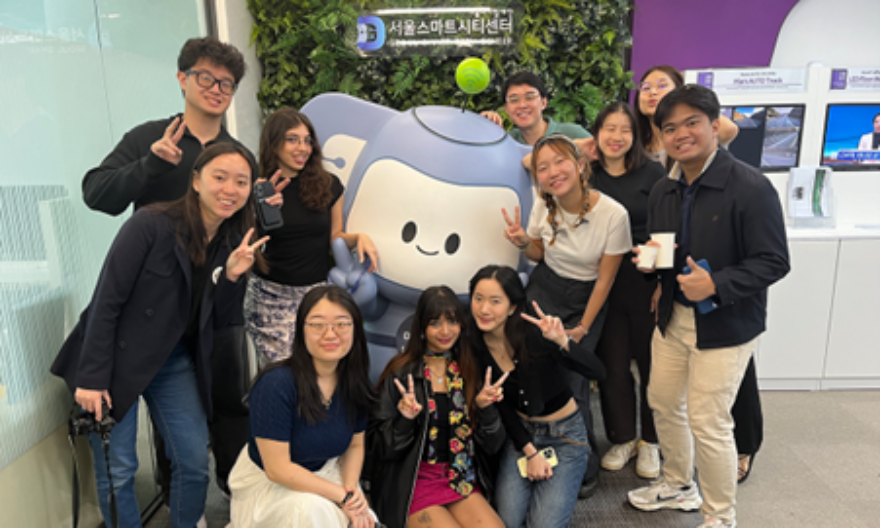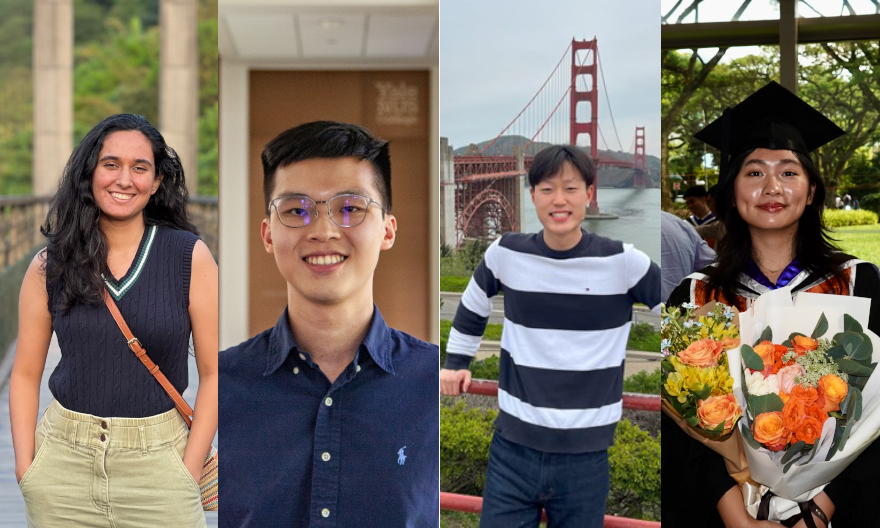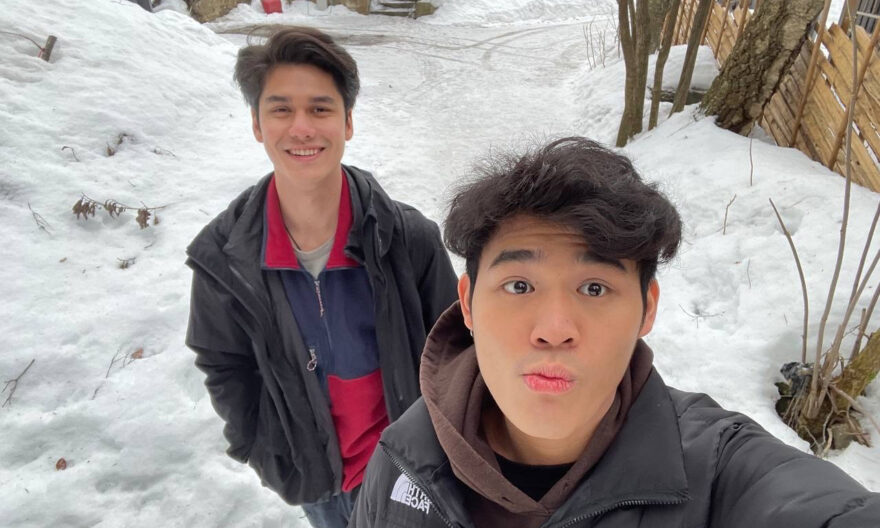Making the world their classroom
Yale-NUS students explore history in Greece and biodiversity in Malaysia
At Yale-NUS, students have the opportunity to take their learning outside the classroom by visiting sites relevant to their subject of interest and engaging in hands-on learning.
Over the term break, four groups of Yale-NUS students engaged in experiential learning in Japan, Thailand, Malaysia and Greece through the Learning Across Boundaries (LAB) programme organised by the Yale-NUS Centre for International & Professional Experience (CIPE). LABs are faculty-led or staff and faculty led programmes that enable faculty and staff to share their scholarship and expertise with students beyond the confines of the traditional classroom. This allows them to explore the themes of the curriculum in a broader context.
Heli Sanghvi (Class of 2024) and Karel Devananda (Class of 2025) were among those who travelled to Greece over the break. Titled ‘Remnants of Classical Athens’, the LAB brought students to Athens, Greece, where they were exposed to artefacts of fifth-century Athens (approximately 400 BCE), which was a remarkable time in Athens when democracy was developing and influential works of philosophy, architecture and theatre were being produced.
To immerse themselves in the events of that time, the students visited museums to learn about history through ancient artefacts, studied Athens’ Roman Era and Neoclassical architecture by visiting various sites, and attended a performance at the Theater of Epidaurus. To better engage with history, the students also gave presentations about sites, discussed the materials they read, and came up with creative projects.
For Heli, watching ‘Hippolytus’, an Ancient Greek tragedy, at the sacred Theatre of Epidaurus was the highlight of the LAB. Throughout the LAB, the group discussed and read the play, and “seeing the captivating rendition of it at the International Epidaurus Film Festival live was a surreal experience,” she added.
Similar to Heli, Karel Devananda (Class of 2025) also considered seeing ‘Hippolytus’ to be his highlight of the trip. Particularly, he was excited about meeting with Katerina Evangelatos, the play’s director, as he was able to gain insight into her thoughts on the play. Besides the content of ‘Hippolytus’, both Heli and Karel agreed that their experience at the theatre, with the sun setting behind the mountains, was both amazing and memorable.
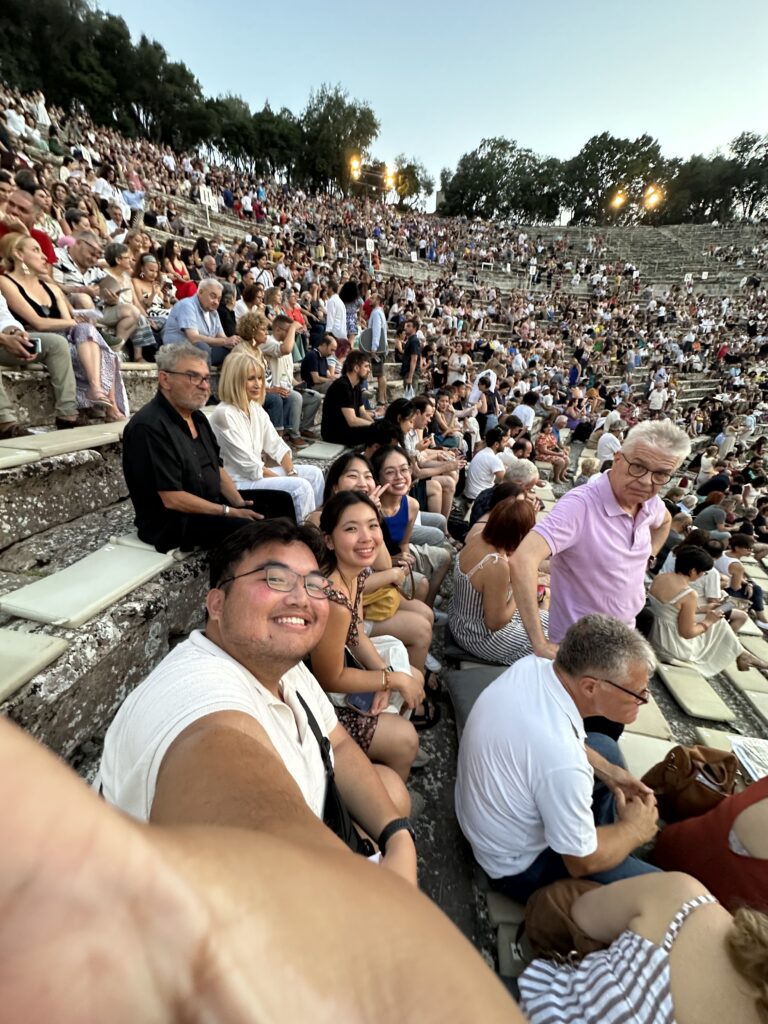 Karel Devananda (Class of 2025) (left) and other students on the LAB waiting to see Hippolytus at the Theatre of Epidaurus. Photo provided by Karel Devananda.
Karel Devananda (Class of 2025) (left) and other students on the LAB waiting to see Hippolytus at the Theatre of Epidaurus. Photo provided by Karel Devananda.
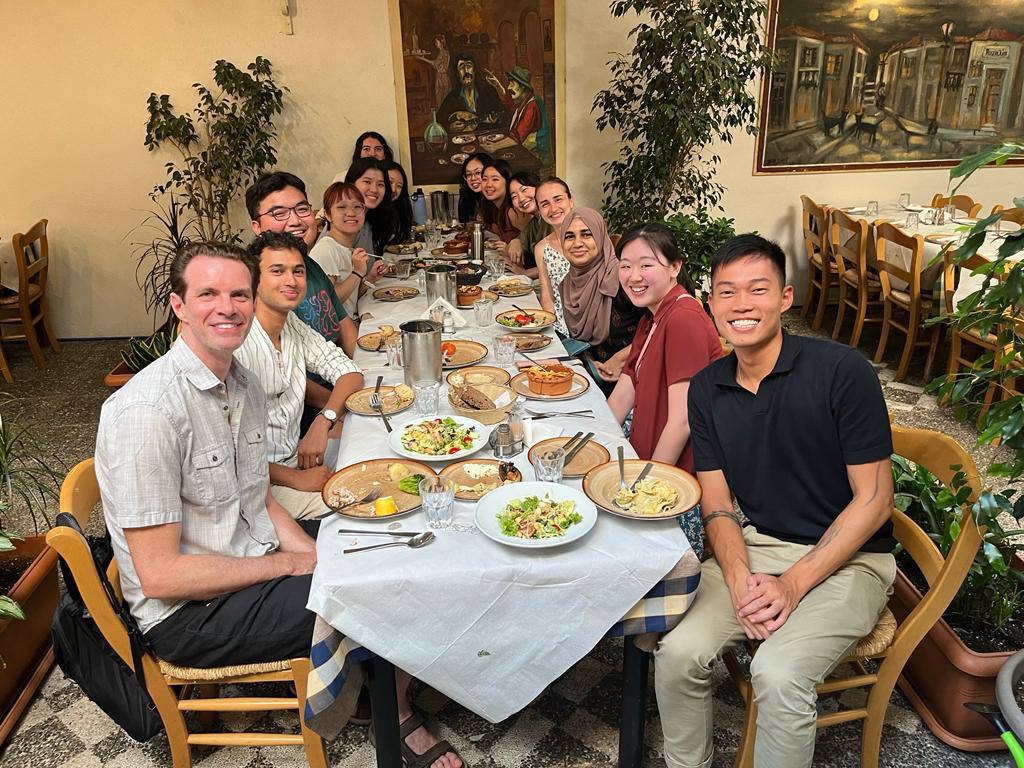 Heli Sanghvi (Class of 2024) (left, last row) and other students on the LAB sharing a meal. Photo provided by Heli Sanghvi (Class of 2024).
Heli Sanghvi (Class of 2024) (left, last row) and other students on the LAB sharing a meal. Photo provided by Heli Sanghvi (Class of 2024).
Although the LAB mainly focused on history, students came from different academic backgrounds and majors, taking away different insights from the trip. As a Psychology major, Heli reflected that going to Athens not only gave her an opportunity to delve into a field outside of her major, but “learning about various ancient civilisations allowed [her] a nuanced perspective on how ancient values can influence human psychology in the present” as well.
Through conversing with tour guides and engaging with other members of the group, Heli learned how people living in Greece today interpret their ancient civilisation. She related this to human behaviour in general as “much of our psychological complexity is a product of the assimilation of our past,” adding that the LAB has given her a new perspective on human emotion and mindset.
Similarly, Karel participated in the LAB to Athens because of its interdisciplinary nature. As a Literature major, he reflected that “the influences of Greek literary culture and traditions are very much prevalent, and you can trace its remnants from antiquity until today.” On the other hand, as a History minor, he “was intrigued by the richness of Greek culture which captivated the Romans such that many Greek traditions were ‘lifted’ to fit their needs.”
During the trip, Karel was able to connect the two disciplines, literature and history, and develop his “comprehension of Greek culture by experiencing it firsthand, making the abstract more palpable.” Outside of his major and minor, he was able to gain valuable insights from students from other disciplines and the guides as well, as they reflected on the same experiences with different perspectives. Overall, Karel reflected that his greatest takeaway from the LAB was the value of multiple point-of-views in unpacking experiences, and he hopes to incorporate different perspectives in his work going forward.
Glenda Wee (Class of 2025) went on the LAB to Kota Kinabulu, Malaysia. Titled ‘On Biodiversity: Cultures, Ecologies, and Taxonomies in Sabah’s Fishways’, the LAB focused on the biodiversity of fish in the region.
To get a better understanding of the topic, the main site used for data collection was the fish market – a place to gather stories, names, recipes, and uses of Sabah’s edible species as well as information about the seasonality, habitats, and conservation status of the organisms. The LAB was held in collaboration with Dr Ting Hui Ng of the Institute of Tropical Biology and Conservation at the Universiti Malaysia Saba (UMS) in Kota Kinabalu, allowing students to dive into the economic life of Borneo’s biodiversity through investigating the heritage and biodiversity of Sabah’s fishways.
While the LAB focused on biodiversity, students also had the opportunity to gain insights into other aspects of Sabah, such as its culture and history. Glenda wanted to delve deeper into biodiversity and history and she shared that her interest in the two areas was sparked when she took a course at Yale-NUS, titled Foundations of Environmental History. Through the Sabah LAB, Glenda hoped to use “food as a starting point to trace the history and culture of people who consume, grow, and trade food”.
Another student who went on the Sabah LAB was Dawn Lim Gin (Class of 2023). Dawn joined the LAB to gain “insight into this uncharted territory of food flows from the ocean and river” as she was curious about the different players in the market and other economically-driven settings.
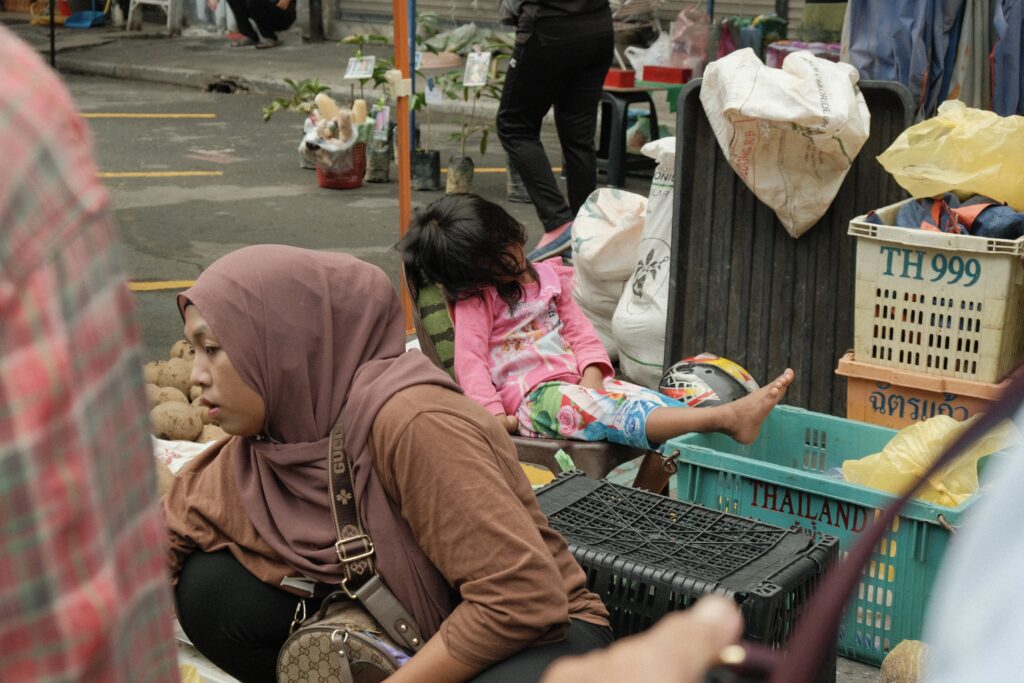 A child sleeping peacefully while her mother sells vegetables. Photo provided by Glenda Wee (Class of 2025).
A child sleeping peacefully while her mother sells vegetables. Photo provided by Glenda Wee (Class of 2025).
Both Glenda and Dawn shared that their highlight of the trip was the visits to the different tamus (traditional open-air markets). For Dawn, the experience helped her to find out more about the biodiversity of fish as well as the diversity of the communities in Kota Kinabalu as she learned that each organism was called different names by different communities. For Glenda, interacting with the stall owners allowed her to learn more about their social lives, such as how children navigated the markets. Sharing her observation, she said, “One boy was finishing his food away from the main sales area; another girl was sleeping peacefully while her mother was busy selling vegetables, and a few children came together to pick edible fish out of the reject pile.”
The students felt the trip has given them another way of viewing human experiences through their relationship with the biodiversity in the region.
“The trip has enabled me to find ways to illuminate and pluralise the meanings within our relationships with the non-human embedded in our lives through immersive experiences, as we nurture new ways of imagining and creating a more liveable future,” reflected Dawn.
Besides the LAB trips to Athens and Sabah, two other groups of students travelled to Tokyo, Japan and Bangkok, Thailand, where they learned about geopolitical change and health promotion case studies, respectively. You can read about our students’ experiences in their LAB trips to Tokyo and Bangkok, and more by visiting our Facebook!

